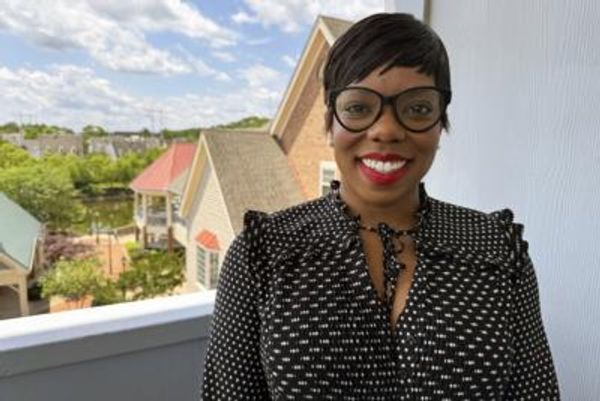
When Bill Shorten parachuted Kimberley Kitching into parliament in 2016, she was no darling of conservatives.
Kitching’s selection was derided by the then prime minister, Malcolm Turnbull, as a “captain’s call”. The Liberal senator Eric Abetz labelled her “unfit for public office” over adverse findings made by the Fair Work Commission and trade union royal commission.
But over her six-year Senate career, Kitching won respect from conservatives for her advocacy on human rights, hawkish stance on China and a successful push for Australia to adopt Magnitsky-style sanctions laws.
Kitching’s sudden death of a suspected heart attack aged 52 prompted an outpouring of grief but also political backbiting, fuelled by Shorten’s observation that “the stress of politics and the machinations in the back rooms had its toll” on her.
Now the recriminations for alleged bullying and lack of action to prevent it are being weaponised by the Morrison government ahead of the May election and within Labor.
Shorten’s insinuation – that a back-room push to replace Kitching may have played a part in her death – was amplified by long-time ally and Health Workers Union secretary, Diana Asmar, who noted in the News Corp tabloids last weekend that three right-faction figures had failed to back her in a meeting the day before her death.
On one view, these are just the genuine expressions of grief from those closest to “Kimba”.
Others claim they are being used to bolster support for a discredited faction whose branch stacking triggered the national executive to take over the Victorian branch.
Attributing ill-health to particular events is absurd given the stresses of politics in general, some say.
“They all play hard – all of them,” one Labor operative said.
“They’re all vicious to each other. Factional politics destroys your career and puts you in the grave early. I’ve seen many people’s health take a massive nose dive as soon as they enter parliament.”
Kimba & Co
Kitching was born in Brisbane and became a friend of Shorten’s wife, Chloe, in childhood. She studied law and was admitted as a solicitor before moving to the private sector and serving on Melbourne city council.

Kitching was married to Andrew Landeryou, who fled overseas in 2004 just days before he was due in court to explain his role in the collapse of the University of Melbourne Student Union. Landeryou insisted he did nothing wrong and answered questions from liquidators after he was arrested on his return.
Kitching was later declared bankrupt after Solomon Lew pursued a debt for $3m arising from Landeryou’s dealings with him. The bankruptcy was later annulled.
Landeryou was also notorious in Melbourne for running the blog Vexnews – a mix of news and scandal-sheet targeting enemies of the Victorian right – and for shenanigans including vandalising Green and Liberal polling material in Melbourne Ports in a bid to help re-elect the Labor MP Michael Danby.
Within Victorian Labor, people’s view of Kitching in large part depended on whether they held her responsible for Landeryou’s blog.
On one view, she was complicit: the “good cop” to Landeryou’s “bad”, but every bit as much the factional animal. On the other, she couldn’t be blamed for the carry-on and invective.
When the Health Services Union (No 1 branch, now the HWU) needed to be cleaned up after fraud and mismanagement in the HSU, Asmar, as secretary, and Kitching, as general manager, took over the branch in 2012.
The Fair Work Commission found that in the course of filling roles at the union, Kitching unlawfully completed right-of-entry tests on behalf of others.
Kitching denied the allegation. Her denial was rejected by both the commission and the trade union royal commission, which recommended she be charged for false statements about the incident, although charges were never laid.
For many years the Victorian right operated under a stability pact between Bill Shorten’s faction and that of the former senator Stephen Conroy and the deputy leader, Richard Marles.
In late 2017 and early 2018, that was upended by a new alignment spearheaded by Adem Somyurek, a former minister in the Daniel Andrews state government, Kitching and Landeryou, but opposed by Marles.
Somyurek was increasingly dominant in the Victorian branch before an explosive investigation by the Age and 60 Minutes in mid-2020 into allegations of branch-stacking triggered a federal takeover and an Independent Broad-based Anti-corruption Commission probe.
Some downplay the extent of Kitching’s factional activities, noting although she was on the Victorian Labor party’s admin committee for 10 years, she didn’t control delegates in her own right.
On this view, her political career was a result of her close personal friendship with Shorten, who added Australian Workers Union numbers to the shoppies, the industrial left and Somyurek’s numbers to bring her to Canberra despite two earlier unsuccessful preselection attempts.
Kitching comes to Canberra
On one account Shorten blindsided colleagues by insisting Kitching was not a candidate until the last day for nominations, using that emerging grouping and Somyurek’s growing influence to strong-arm the rest of the party to accept her as the replacement for Conroy’s Senate vacancy in 2016.
A spokesman for Shorten said he “doesn’t agree with that characterisation” and the sudden decision was more a function of Conroy’s abrupt departure.
The shadow attorney general, Mark Dreyfus, reportedly resisted the appointment by threatening to resign. The then frontbench MP Anthony Albanese delicately criticised Shorten’s call, one of the few instances he publicly differentiated himself from the then Labor leader.
Dreyfus changed his tune, later defending the appointment. He responded to a question about Landeryou’s factional influence behind the scenes by saying it would be unreasonable to criticise Kitching as “a female politician because of the actions of her husband”, suggesting there were “echoes of Trump in that”.
In November 2021, Somyurek testified to the Victorian Ibac that he suggested a factional ally access the electoral roll via Kitching’s office, as this could gain access to the entire Victorian roll.
Somyurek said this was “common practice” to access a “generic database” in a senator’s office, and it never crossed his mind that this defeated a safeguard that MPs only had access to the roll in their area.
After the national executive took over the Victorian branch to purge it of branch-stacked members, Asmar headed to the Victorian supreme court and the court of appeal to challenge the intervention on the basis it infringed members’ right to preselect candidates.
After losing in those forums in October last year and February 2022, Asmar and a group of Victorian unions this week sought to take the case to the high court, which will require leave to appeal.
Policy differences and bullying claims
Kitching cultivated a wide network of foreign policy and defence sources as she pursued goals including the Magnitsky laws – unsuccessfully pushed by Danby in the previous parliament – and tougher lines against China and in favour of Israel within Labor.
Danby, the former member for Melbourne Ports and a mentor of Kitching, told Guardian Australia she represented the “Hawke-Beazley foreign policy tradition”.
Kitching had “political instincts for the mainstream” which were more in tune with the majority of Australians, he said.

“There were real differences in policy over China,” he told Sky News. “She was a fighter for those views.”
The claim that Kitching was bullied focuses on incidents including the Labor Senate leader, Penny Wong, telling her “if you had children, you might understand why there is a climate emergency” and Kitching being dropped from the tactics committee after allegedly tipping off Linda Reynolds about Labor’s plan to weaponise Brittany Higgins’s complaint against the government.
Kitching wrote a seven-page letter addressed but not sent to Labor’s deputy Senate leader, Kristina Keneally, denying having forewarned Reynolds and claiming she had no prior knowledge of the Higgins complaint. Danby claims this means the allegation had been “debunked” but Reynolds stands by the claim.
In his eulogy for Kitching, Landeryou told mourners on Monday that “the unpleasantness” Kitching experienced from a “cantankerous cabal” inside the parliamentary party and outside it “did baffle and hurt her”.
Landeryou said he did not blame “any one person, or any one meeting, or any campaign of unpleasantness” for her death and was angry he “didn’t meddle enough in her health”.
“I’m angry I failed and failed again to persuade her to slow down, I’m angry I couldn’t and didn’t protect her from menace – and I fear I attracted some,” he said.
Wong, Keneally and the shadow finance minister, Katy Gallagher, have denied bullying Kitching.
Wong apologised to Kitching for the comment, which she explained on Saturday wasn’t meant “to personally attack her” but rather “to express the distress that many children feel about climate change”.
Kitching spoke to Marles asking for the decision to drop her from the tactics committee to be reversed. But Albanese said she didn’t make a formal complaint of bullying to him or the party’s independent process.
“From time to time, people are removed or replaced or stood aside from tactics committees and they go back on,” the Labor leader told ABC TV this week, rejecting suggestions this amounted to bullying.
Kitching remained a shadow assistant minister – responsible for the NDIS and government services – until her death, despite losing the role of shadow assistant for government accountability.
The widespread outpouring of grief confirmed Kitching’s wide network of influence in the media and across the political divide.
Many journalists mourned her loss as a friend and conservatives from the defence minister, Peter Dutton, to Liberal vice-president Teena McQueen claimed to have personal insight into her struggles in Labor.
Others appeared to out her as a source for stories suggesting Labor could be weak on China.
Danby said claims Kitching undermined Labor’s position on China “doesn’t justify the whole package of cruel treatment and it doesn’t justify her complaints not being passed on”.

After grief … unite or fight?
Shorten used Kitching’s funeral on Monday to urge the party to “channel their grief” into winning the upcoming federal election.
“She understood – in the marrow of her bones – that the people who count on Labor count, above all, on Labor government,” Shorten said.
On Friday, he stressed that “at no point” had he advocated for an inquiry into the bullying claims and he “accepted the decision of the Labor leadership on this”.
Earlier in the week, Danby said Kitching was “no weakling” but she was “owed justice” – suggesting an inquiry could help answer questions like “whether Richard Marles passed Kimberley’s complaints on as he should have”.
“There were terrible things done to Kimberley beyond political faction heavying by the Lilliputians … here in Victoria,” he told Sky, in reference to efforts by the Labor right to purge the branch of the influence of Somyurek’s faction.
Danby said that nobody blamed factional operatives in Victoria nor “the power group in Canberra” for her death but “it certainly increased her stress”.
Danby told Guardian Australia the party could win the election and establish an independent inquiry into her treatment.
On the eve of the official campaign, Scott Morrison seized on Kitching and her allies’ allegations as a means to paint Albanese as soft on “bullies” in his party and the region – meaning China.
Labor’s national executive met on Wednesday to open nominations to fill Kitching’s Senate vacancy with a ballot to be contested on Tuesday.
Current contenders include the Victorian corrections minister, Natalie Hutchins, the former Kooyong candidate and public servant Jana Stewart, and the barrister and former Higgins candidate Fiona McLeod.
Kitching’s allies are backing Hutchins, and while few would dispute the Victorian minister’s talent, some are upset at the way Kitching’s death has been used to leverage factional influence to choose her replacement. Danby rejects this claim, arguing it would be “sordid”.
“You always have to be careful that there is no winner take all in politics – otherwise the divisions in the right will outlast many of our lifetimes,” said one operative.







